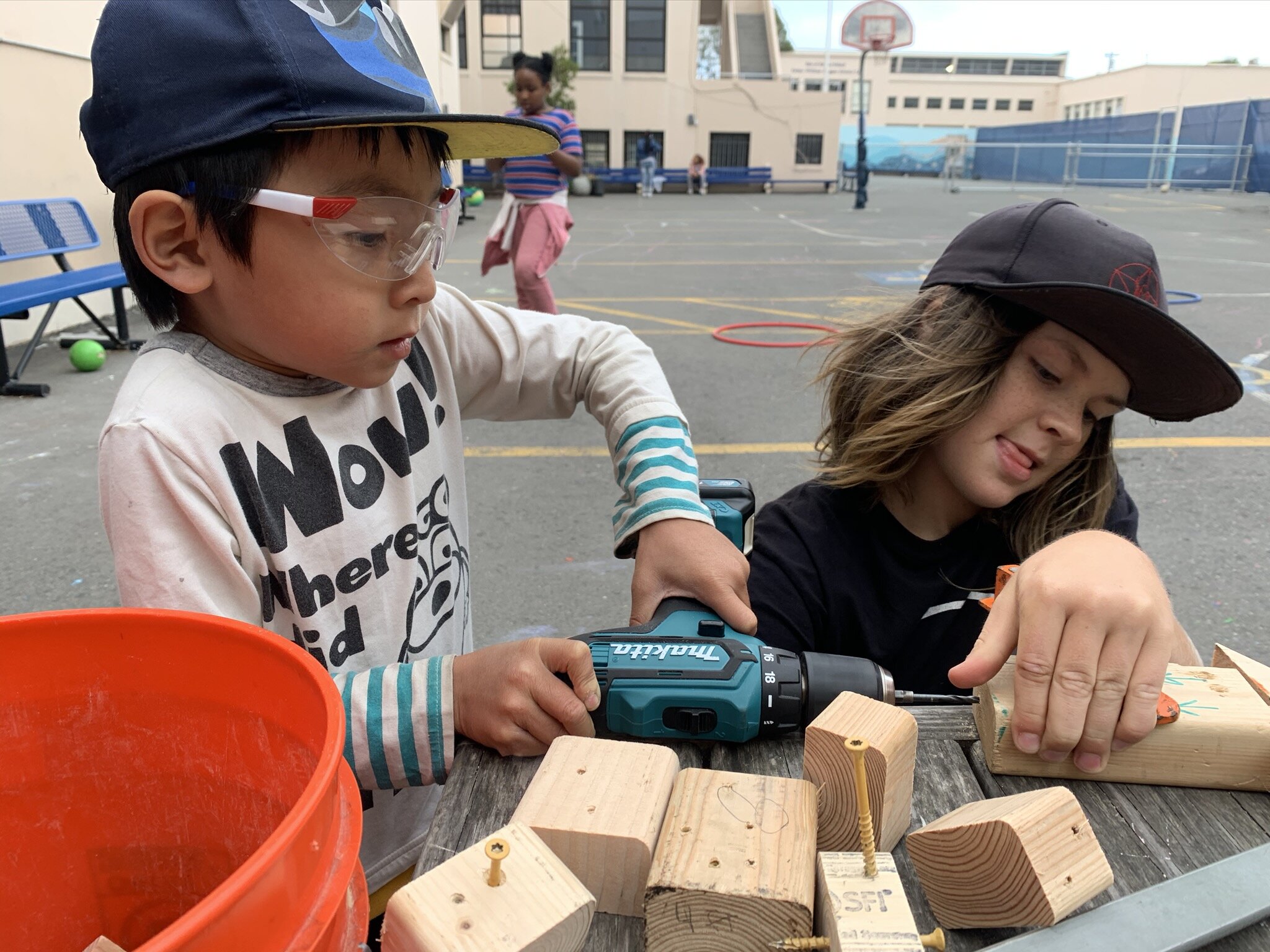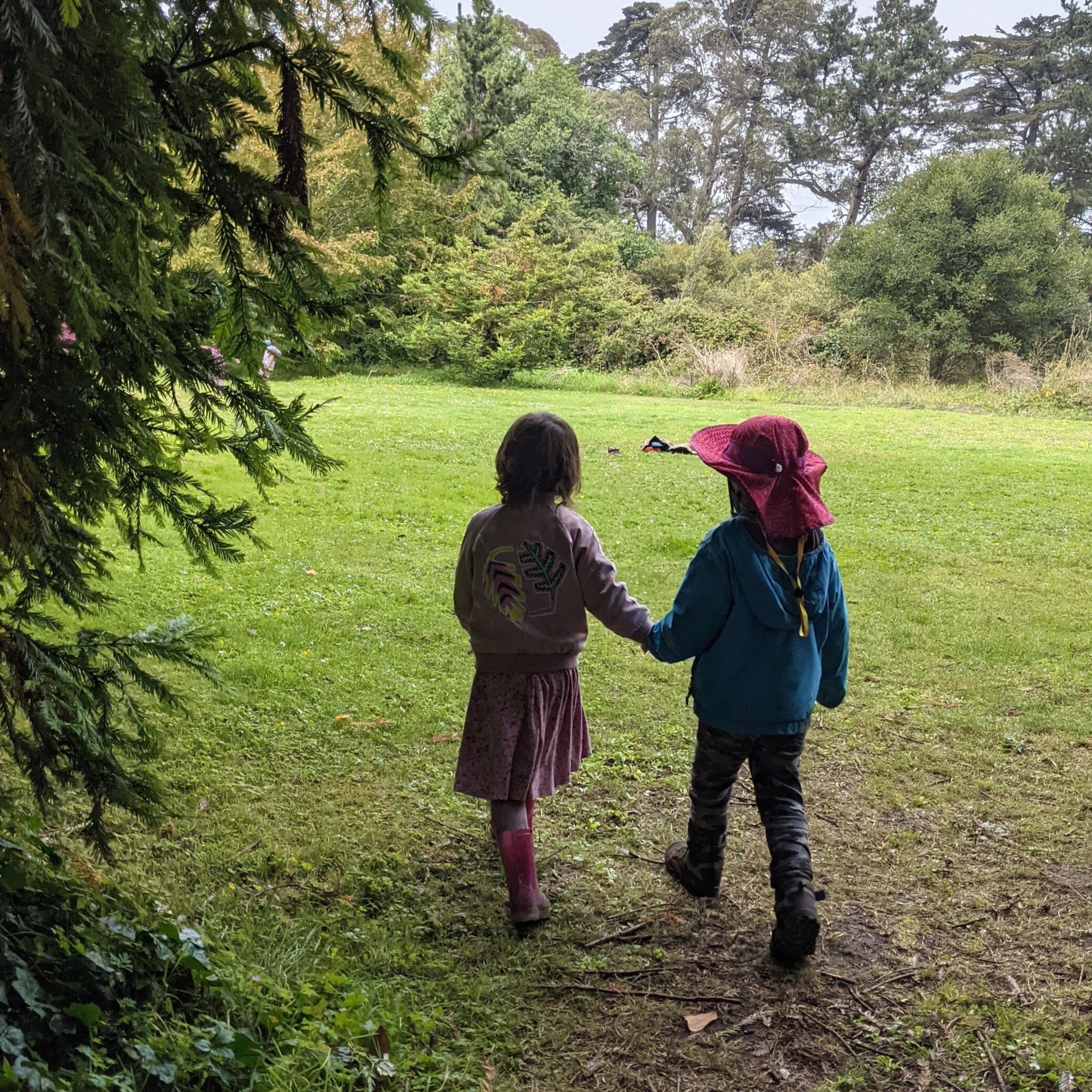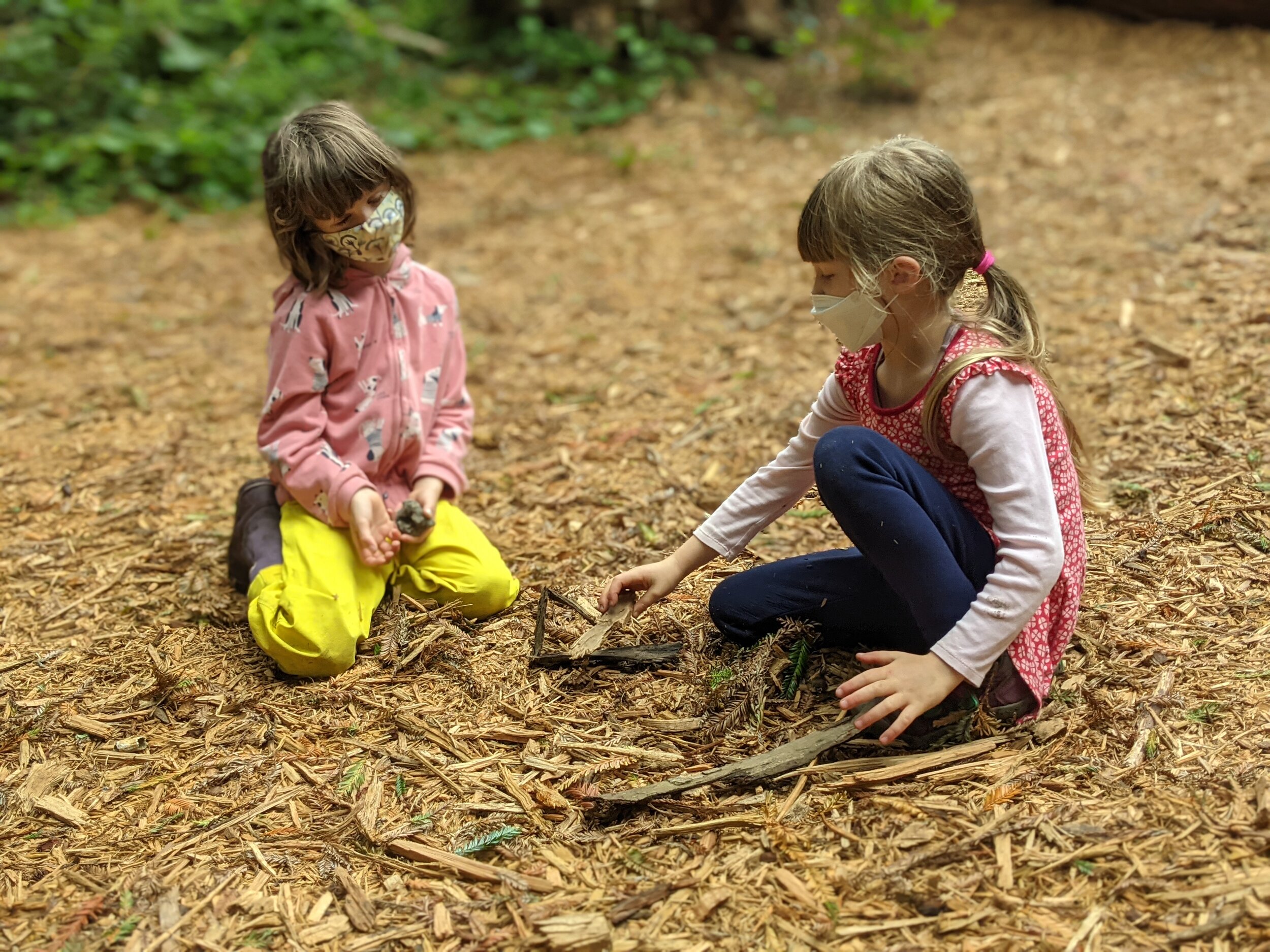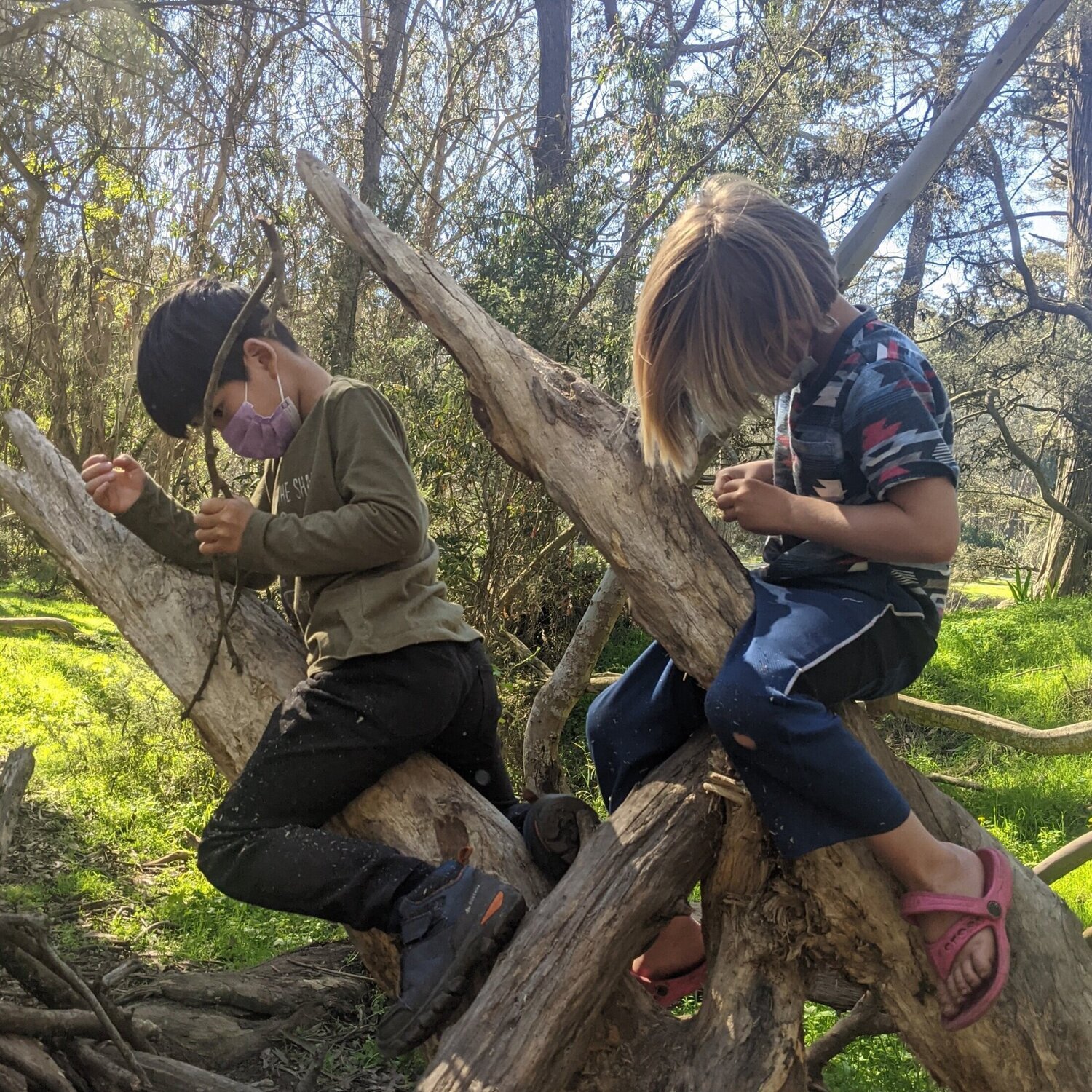Purposeful Play
Throughout life,
our brains are motivated by play
Play is the vehicle by which we facilitate learning at Brightworks in the early years. We capitalize on the internal motivation to learn from things that light us up. Through thoughtfully arranged environments, engaging activities and interesting materials, access to an outdoor classroom, and the artful support of collaborators, students develop interpersonal, executive function, communication and problem solving skills required for the 21st century.
Sparking Joy is Key!
“At Brightworks, we acknowledge the innate drive to learn about ourselves and our world that children possess, and we very intentionally make sure we are not negatively interfering with that by imposing anything that interferes with that. Our structures and supports are designed to use that inherent momentum and augment it and support it, not to interfere with it. ”
Play naturally meets children where they are. It is engaging and it is interest-driven. All learning gains made by children are valued when learning through play, be they social, emotional, physical, cognitive or creative.
Ultimately our goal is to support the whole child; fostering a range of skills and understandings. The focus on the whole-child development is a key distinguishing feature of learning through play when compared with other less-playful educational approaches regarding outcomes.
Play fuels skill development, naturally
Through play, children:
Practice self advocacy by sharing what they need physically and emotionally to be safe and keep others safe, by understanding their own emotions and those of others
Practice being a positive community member by being a good friend to age peers, having good relationships with students of mixed ages, resolving conflicts constructively, and taking responsibility for shared spaces and materials
Practice collaborating with others through sharing ideas, valuing group and individual perspectives, and offering encouragement, appreciation, and gratitude toward others
Practice flexibility through compromising with others, using I-statements, being aware of verbal and non-verbal cues from peers, honoring and repairing during conflict, and transitioning easily between tasks and times of day.
A focus on social-emotional learning
In addition to academic milestones, playful exploration allows our early elementary learners to develop an understanding of and appreciation for individual and collective well-being.
We honor all voices, and model and encourage respectful and kind behavior and communication in social situations, in expressing ideas, and in making new friends. Learners practice thinking in a growth mindset to consider their talents and selves as unique and beautiful elements that make up the fullness of who they are.
Each learner holds different needs and stories, and through honoring differences and similarities, our early learners build their empathy, trust, and self advocacy. In conflict resolution, we honor the legitimacy of emotions and focus on repair and restorative justice practices.
“Play behavior is one of the most important parts of being human. It is also part of the natural instincts that children possess. There are certain components of the environment that seem to evoke natural glee, and parents, caregivers, or teachers can observe what naturally and spontaneously evokes that natural reaction in children.
For example, if a child actively and routinely seeks interaction with other children, and that produces gleefulness, we should encourage that child to socialize with other children and even seek employment in that arena as adults because that is what they really enjoy. If on the other hand, an introverted kind of joyfulness occurs; don’t force that child into something that is not necessarily comfortable, but let them follow innate curiosity. If we observe and encourage actions that produce natural glee, it helps children learn, and become happy adults. ”







